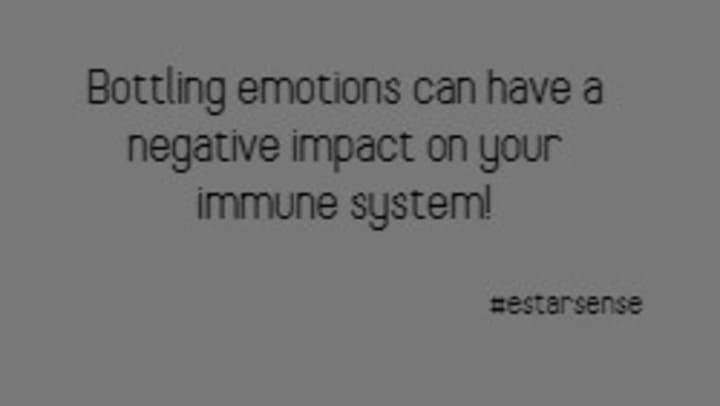How to normalise talk around mental health
Mental health matters

"Mental health is an area where people are embarrassed to talk about: they don't want to talk about it because somehow they feel they are a failure as a parent/family member; they are embarrassed for their family and want to protect them from shame, but mental health is something you have to talk about!" Anna Wintour
A few decades ago, having conversations about mental health was rare. However, in recent times these conversations have started to gain new grounds in the hope that mental health is not seen as taboo or stigma. Having said that MH still remains a prevalent problem in today’s society.
Two weeks ago, I was having a bad day. I had just had a bad encounter with someone and before I could process that, I got news that some people I knew had died. The tears just came and I couldn’t stop, and, worse, I was in the middle of the shopping aisles in ASDA! Then a kindly middle-aged woman asked if I was ok. Amid tears I said no because her question seemed to refill the tear bucket, and I was embarrassed. However, she wasn’t done, “honey, we all have bad mental health days, let me know if there is anything I can do to support you. I’ll be here for the next hour.” I could feel her sincerity, her kindness and compassion, and although the tears kept coming I smiled at the thought of a total stranger offering another total stranger support and not judgement.
For me, this is how we normalise talks around mental health. And before you ask how my situation was a mental health problem, you have to think of mental health holistically – it includes our emotional, psychological and social well-being and it affects how we think, feel and act and determines how we handle stress, how we relate to other people and how we make decisions and/or choices.
Now for the shocker - one of the most mindboggling things I hear(d) this week was that Piers Morgan didn’t believe Meghan Markle had suicidal thoughts. This here is the very problem society has – people are not believed. The general consensus is that people get frustrated when people don’t talk about issues they might be experiencing and harm themselves, and yet when people talk about issues they are experiencing, they are not believed and are judged and ridiculed.
A few years ago, a much loved and famous UK TV presenter, Caroline Flack link, took her own life. It sent a shock wave across the nation, and as much as people expressed shock and sadness, there was also a lot of whys – ‘why didn’t she speak up,’ or ‘why didn’t she ask for help,’ why why why.’ These questions plague every person whose loved one kills themselves. The endless loop of what ifs - what if she spoke up? What if I knew what was happening? What if what if what if. A seemingly successful beautiful woman took her own life due to whatever mental health issues she couldn’t cope with; and when a seemingly successful beautiful woman tells the world that she almost couldn’t cope due to stress, she’s told to wear her princess crown and shut the hell up!

The fundamentals of a good mental health service is to treat people with dignity, respect and empathy and absolutely believe them. Many people are working hard to normalise talks around mental health. And it only takes a person in a high profile platform to completely undermine that by making a statement that shuts every person with a mental health issue. For example, if a suicidal person heard Meghan talk to Oprah about her mental health issues, that person would have been encouraged to talk about their issues. However, if the same person heard this high profile person saying they didn’t believe it, there’s a very high possibility the person would retract in their shell of shame, fear, desperation and hopelessness and never ask for help or talk about it to anyone. Someone with suicidal thoughts is already thinking their life is not worth living, and their reasoning capacity is greatly compromised, “well if they don’t believe Meghan, what chance does a mere mortal have?”
Right now there are conversations about mental health because, due to the pandemic, anxiety levels have risen, it is important to realise this and be mindful of the words we use and how we convey messages. Normalising talks around mental health means creating a culture where being vulnerable is acceptable and people can express their feelings without ridicule. If you see someone being overwhelmed by emotions for whatever reasons, offer them a kind word or reassurance. Whatever you do, do not laugh or ridicule them, or call them names like ‘schizo’, crazy or whatever derogatory terms relating to mental health you know.

Thankfully, the stigma attached to mental health and illness is receding in general, however, that doesn’t mean the struggles are any less stressful or shameful. Mental illnesses and disorders are not personal choices or flaws, they are medical conditions that require care and compassion. They say the most dangerous thing with mental illness is staying silent, but, equally, the most dangerous thing a person can do is say they didn’t believe another when they said they were suicidal.
To normalise talks around mental health we have to practice what we preach, and those in high profile platforms should use the said platforms for the good of humanity and not for personal vendettas.
These are difficult issues to write about and if after reading you feel you need to talk to someone please check out some links at the bottom of this post.
About the Creator
Things I hear
Educate, inspire, empower and transform lives by lifting the lid on societal, cultural and mental health issues through entertaining storytelling. Stories to inspire change on issues affecting the way we live, and how we view the world.






Comments
There are no comments for this story
Be the first to respond and start the conversation.